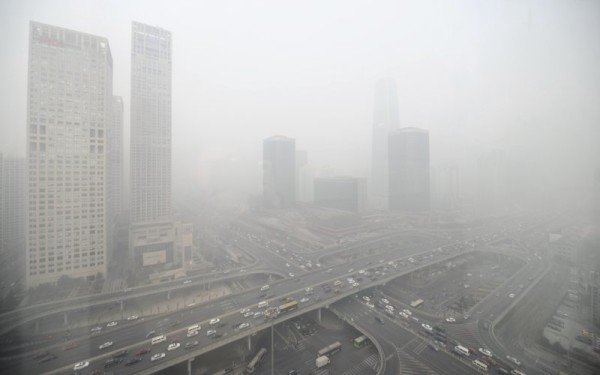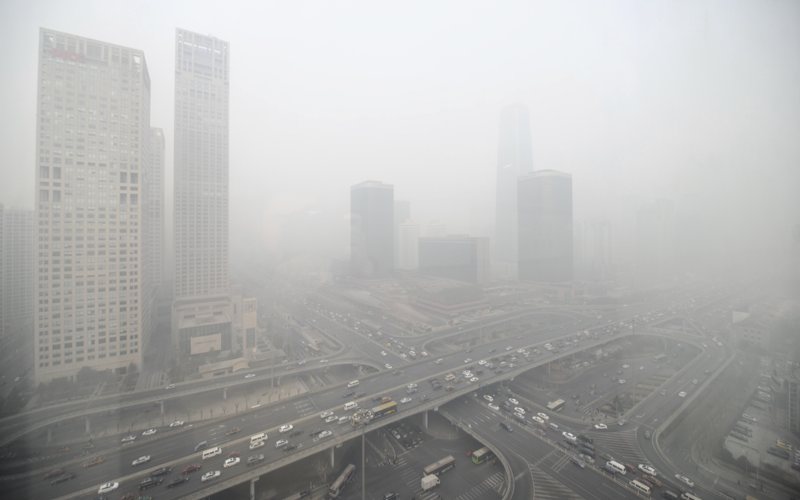Beijing authorities have issued a second pollution red alert, little more than a week after the first ever such warning.
China’s capital will see hazardous smog from December 19 until December 22, the Beijing Meteorological Service said.
Nationwide, a vast area from Xian in central China to Harbin in the north-east would also be affected, the National Meteorological Center said.
The red alert triggers restrictions on vehicle use, factories and construction work.
The government has promised to take action to address often dangerous levels of pollution.
Meteorological authorities have said that the regional smog is likely to be worse than the last red alert earlier this month, with the PM2.5 pollution level to exceed 500 micrograms per cubic meter.
The smog which hit Beijing on December 8 had peaked just below 300. Residents are encouraged to stay indoors if levels exceed that level.
The World Health Organization (WHO) recommends 25 micrograms per cubic meter as the maximum safe level.
Authorities released a map showing that heavy smog would blanket a swathe of China spanning nearly 1,200 miles, encompassing at least 12 major cities, with Beijing and nearby city Shijiazhuang heaviest hit.
The other cities would experience medium or lesser levels of smog.
The news was greeted with exasperation and worry among Chinese citizens online.
The current four-level alert system was instituted about two years ago, although the red alert had never been issued until this month.
Coal-powered industries and heating systems – in heavy use during the cold Beijing winter – are major contributors to the smog, which is made worse by weather conditions and the city’s geography.
Beijing is bordered to the south and east by industrial areas that generate pollution, and to the north and west by mountains that trap it over the city.
China still depends on coal for more than 60% of its power, despite big investments in renewable energy sources.
Earlier this month China was part of the landmark Paris climate change agreement that set a course for China, and the world, to move away from fossil fuels in the long term.
